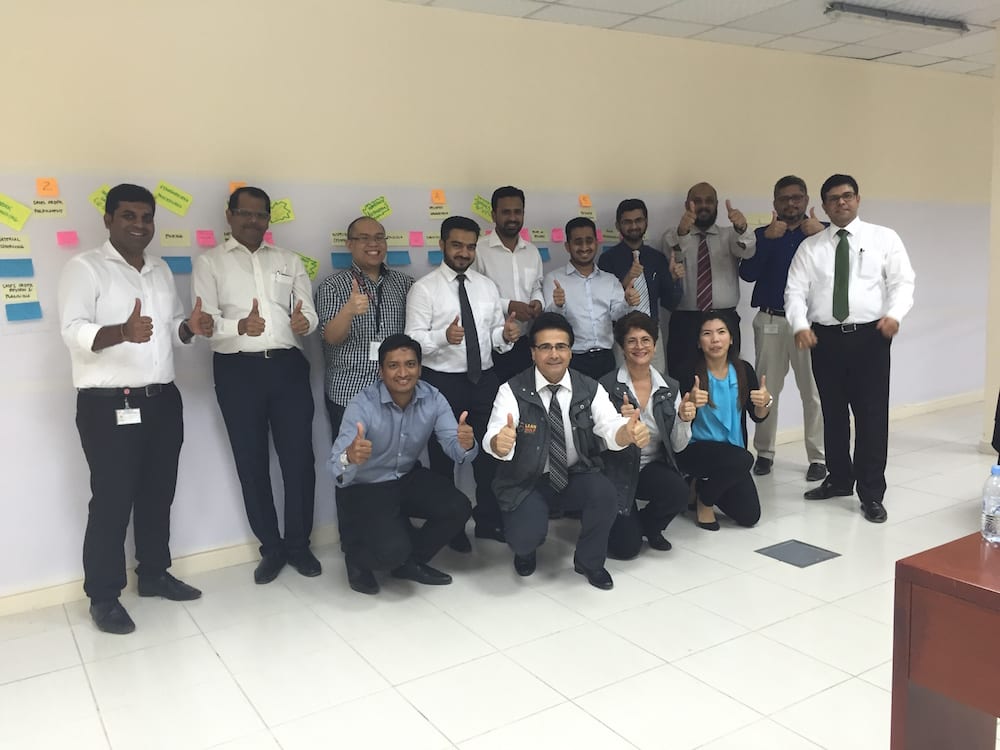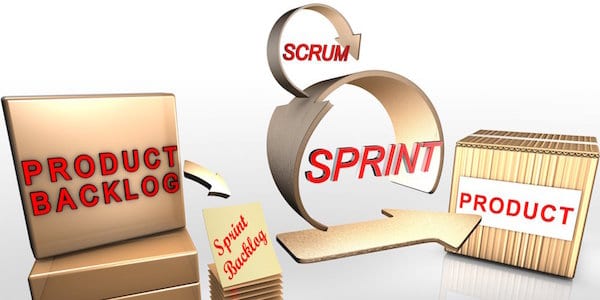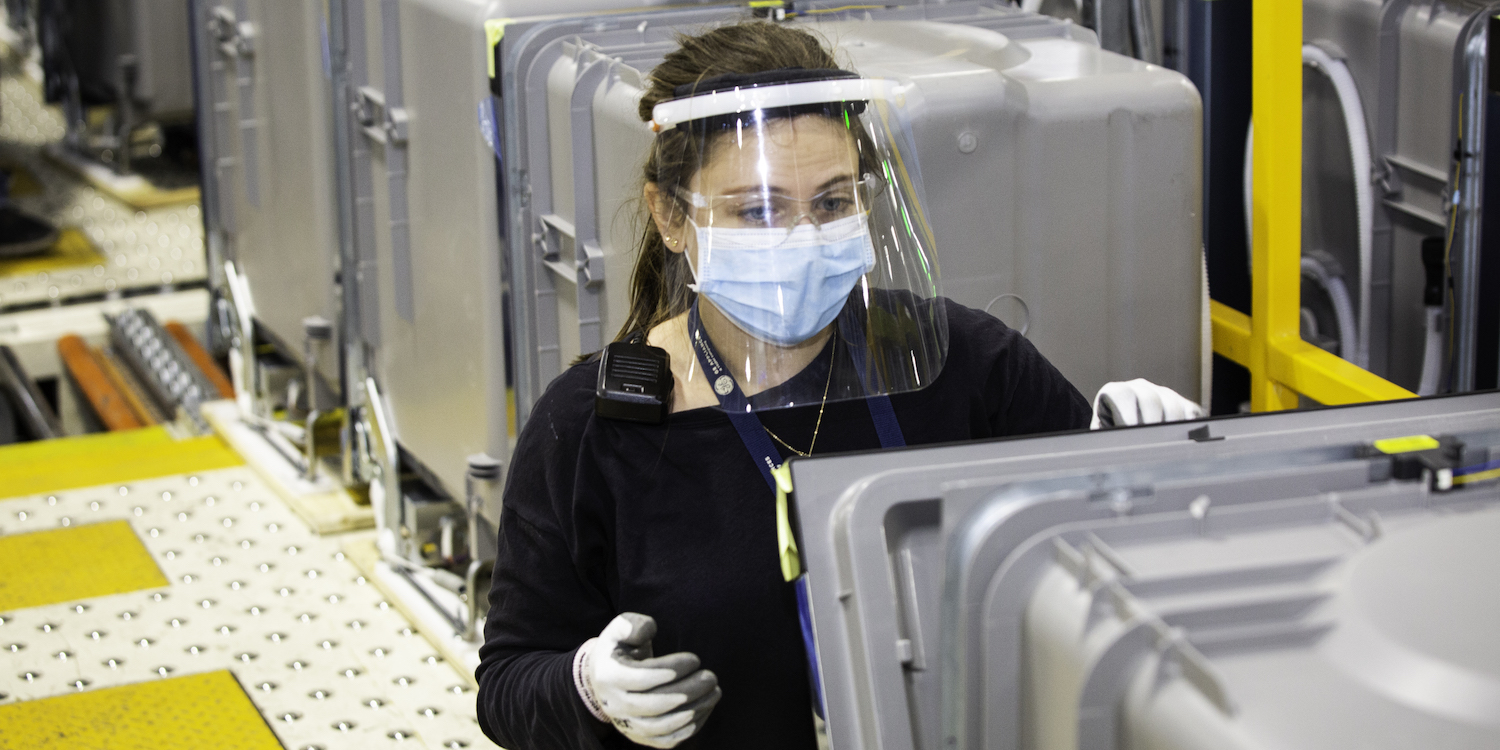
Using lean as a way to transform your business model
INTERVIEW – Lean is making inroads in the Middle East! In this interview, a Senior VP of Gerab National Enterprises tells us how the company is using lean to reinvent itself as a project management firm.
Interviewee: Ronald Uchil, Vice President of Corporate Excellence and HR, Gerab National Enterprises
Roberto Priolo: Can you start by introducing Gerab National Enterprises and explaining the context in which the company decided to adopt lean thinking?
Ronald Uchil: Gerab National Enterprises (GNE) is a bulk stockist and supplier of seamless, welded pipes and allied components, headquartered in Dubai, United Arab Emirates.
Our sector is heavily reliant on the oil and gas industry, which has seen dramatic changes in the past few years: with the opening up of the UAE economy, many companies from outside the Middle East have been able to enter our market in the past decade – something that in the past was very difficult. We experienced a dip in global steel prices in 2013, and a huge drop in oil and gas prices in the past couple of years – which caused many projects in our region to be put on hold. It was in early 2014 that we took the strategic decision to become a lean and more efficient organization, by reviewing our business model and cost structure, and finding innovative ways to improve our internal processes, utilize our resources and enhance our existing capacity.
RP: How did the journey unfold?
RU: We started with the idea of improving the efficiency of our processes and properly documenting our internal policies and procedures. We also identified functions that were not part of our core business and hived them off as independent businesses: both our IT department and our Operations department were spun off as independent entities. The former started to serve the IT needs of a significant number of new external clients (in addition to GNE's), while the latter became a third-party logistics company that manages GNE's operations as well as a host of other external customers.

In order to reduce the waste we were generating through excessive transportation and waiting, we combined our offices in the UAE into one central location at our Headquarters.
Our first step towards becoming a leaner organization was implementing 5S in our Operations department, which made our processes significantly smoother. We soon realized that if we wanted to make progress in our implementation of lean across Gerab, we'd need to have trained people who could teach their colleagues lean principles and techniques. This resulted in the launch of the GNE's Lean Academy, which we ran in partnership with the Lean Gulf Institute.
We identified 25 team members who went through a "Lean 101" training program (we wanted our people to understand why lean thinking is so important to GNE). Out of those 25 people, we selected a team of 12 who went on to get trained in value stream mapping (VSM). They were then able to map the end-to-end value stream of one of our business units, to really identify the current state of the work. That's when our understanding of the concepts of value-added and non-value-added really started to grow. VSM is helping us think about how we can offer value added services to our end customers.
Our plan for 2017 is to build on our initial work, train people on how to coach their colleagues, and help lean ideas spread across the organization.
RP: How did value stream mapping help you in the context of supply chain management?
RU: There is no doubt that our VSM exercises gave us visibility over what creates value for our customers and what doesn't, both within our internal processes and within the work of our suppliers. It taught us how the different parts of the organization (and of the supply chain) impact one another.
The long lead-times for products coming from our suppliers are one of our biggest challenges, on which we remain deeply focused. We will have to find ways to collaborate and work with suppliers to get the lead-times down, by implementing standardized ways to process orders.
RP: What are the biggest difficulties you are encountering in your implementation of lean?
RU: We were blessed to have the support of our Group Managing Director, Mr Abdullah Sharafi, which made the implementation of the project a lot easier. At the same time, embarking on a lean journey draws a lot of organizational bandwidth (in terms of time and resource allocation), which means that getting consistent support from the Lean Team is a challenge. There is simply not enough time! That being said, we have still managed to get a lot done in a short span of time.
Another difficult part of our journey was, of course, getting people to buy into what we are trying to do. We spent a lot of time explaining to them that lean would not represent a threat to their jobs, but simply a way to improve the efficiency of the organization.
RP: What does lean mean to you?
RU: I have seen lean being implemented very effectively in both the manufacturing and service industry, and I am aware of the great results the methodology can bring. These days I see it as a way to radically transform an organization by streamlining its processes and developing its people to make excellent products or provide excellent service.
RP: Where will this lean transformation take Gerab?
RU: Thanks to its focus on business transformation, GNE will change dramatically. We aim to become a global leader in our industry and adopt project management across the company, and we see lean as one of the tools we can leverage to provide value-added services to our clients. Our transformation is also fuelled by use of the latest technologies, which allows us to automate, map the value stream and gather knowledge. Thanks to our IT initiatives, we will be able to get better visibility of our operations, in order to control and coordinate the work between our departments and ensure professional project management and thereby provide value to our customers.
Lean is expanding in the Middle East, where LGN has a new affiliate - the Lean Gulf Institute
For more information, contact Deborah Salimi at deb@leangulf.org
THE INTERVIEWEE

Read more


INTERVIEW – In this follow-up conversation with the Hospital Moinhos de Vento in Brazil, we learn about the elements that are helping them to make lean stick.


FEATURE – This piece analyzes the different elements of scrum, an agile software development framework, as seen from the point of view of traditional lean thinking.


INTERVIEW – Rose Keanly discusses the role of lean in a strategic business transformation in the financial services sector and the dos and don’ts of bringing lean to a large organization.


INTERVIEW – In 2020, GE Appliances had to stand up a brand-new assembly process for a new dishwasher. The leader responsible for the program explains how LPPD helped them to get it right.

